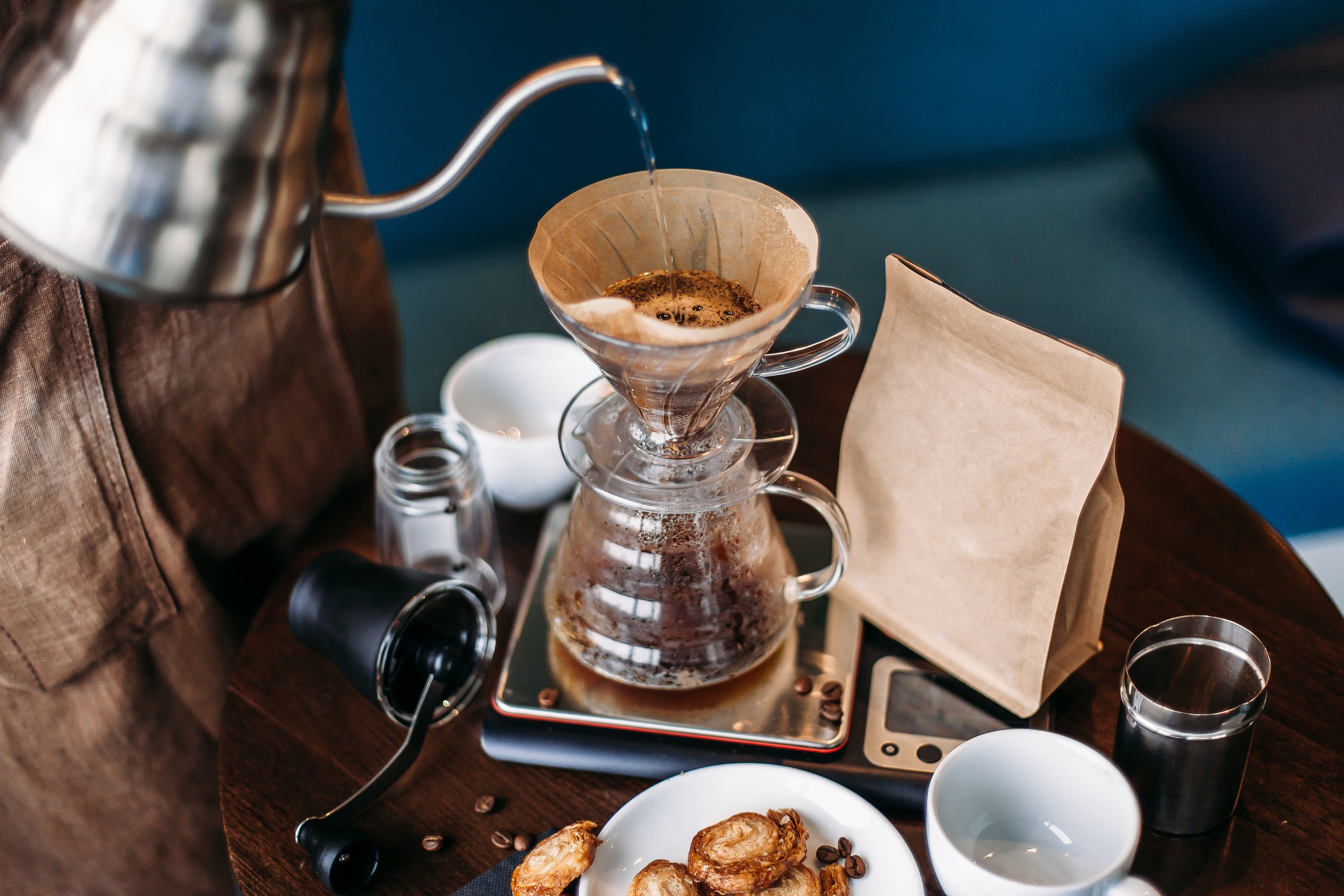What is the best coffee for pour over?
If you are in the search for the best coffee beans for pour over brewing, you are in the right place. It can be very overwhelming trying to choose the best coffee beans for your morning pour over coffee, with so many choices available. Please know that there is no right or wrong; however, the coffee beans you choose will make all the difference! Personally, pour over coffee is my favorite way to brew coffee when I am not pressed for time and just want to savor the moment.
Whether you're using a Chemex or a V60, there are so many different beans to try and explore, as well as the type of roast, so let’s go ahead and discuss the many options. First things first, I highly recommed choosing specialty-grade coffee when brewing pour-over coffee. If you’re not sure what that means, please read this blog post about what specialty coffee means. Now, let’s move forward.
TYPE OF ROAST
The type of roast you choose matters. For example, I make pour over coffee weekly at home and on weekends at the Farmers Market. I have learned that customers tend to respond well to light and medium roasted coffee vs darker roasts; this is specifically for pour over coffee. As a refresher: pour over coffee is a type of brewing method. It is a slow pour, extraction, over ground coffee, resulting in delightful coffee. It brings out the best, natural flavors of the coffee. Pour over coffee allows you to pick up on taste notes that cannot be tasted on French Press brewing, for instance. Because of this, it's best to choose beans that are not roasted too dark. Light roasts and medium roasts are the sweet spot.
COFFEE REGION
Choosing coffee from a particular region also makes a difference. If you're not picky about where the coffee comes from, that is great, but for those who are a bit more selective, read on.
Depending on your palette and your taste buds, you might prefer coffee that has more fruity taste notes vs coffee that has more chocolaty taste notes. So, consider that as you choose your beans.
For example, Ethiopian coffee and Kenyan coffee beans tend to have strong fruity notes, of berries; whereas, Tanzanian coffee, Congolese coffee, or Bolivian coffee will be stronger or bolder on the chocolate side. So think about what taste notes you want to taste in your pour over coffee. Some of you may not be picky about taste notes or perhaps your palette isn't strong enough to pick up on any taste notes, but now I’ve put that idea in your head for the next time you choose new coffee beans.
Here’s a breakdown of the experience I have had with different coffee beans for pour-over:
Boliva La Paz: Full bodied, dark chocolate, caramel
Panama Boquette: Cocoa, Toffee, Buterry
Ethiopia: Red currant, berries, vanilla
D.R. Congo: Dark chocolate, vanilla, black tea, brown sugar
Tanzania: Chocolatey, nuts, citrus, floral
Kenya: Floral, vanilla, berries, (some, chocolate)
So based on my recommendation and experience, best to go with medium or light roasts to allow you to really enjoy and savor the taste notes because of that slow extraction. But if you prefer a darker roast, that works too.
In conclusion, the best pour over coffee beans are the ones that taste the best to you. You may have to try different kinds until you finally find the one that you like best, specifically for pour over.
PRO TIP
Make sure that your ratio is correct. Quick recommendation: If I am making coffee at home for one person (me),in an 8-10 oz mug, I will use 21 grams of ground coffee (medium-coarse), then I will pour 360 ml/grams of water in under 3 minutes. I will go over ratios for pour over coffee on a different blog post, but for this short blog post I just wanted to go ahead and give you few different suggestions on the best coffee for your pour over coffee.
RECAP
When in doubt, go with a medium or a light roast. Medium is always a safe choice. If you're looking for something more on the berry-like/fruity side, then look into coffee from Ethiopia. But if you're looking for something with a bold, chocolatey taste, look no further than Tanzania and D.R Congo, or even Bolivia.
And if you're interested in seeing me make pour over coffee, look no further! See the video below to see how I make my fresh roasted, pour over coffee. There’s a lovely background of Lake Kivu in Goma, Democratic Republic of the Congo.
Thanks for reading and I hope you'll return to the blog for more resources on all things coffee.




